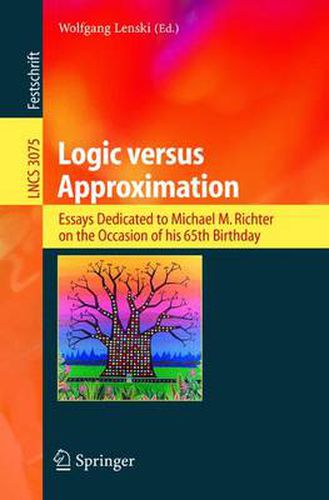Readings Newsletter
Become a Readings Member to make your shopping experience even easier.
Sign in or sign up for free!
You’re not far away from qualifying for FREE standard shipping within Australia
You’ve qualified for FREE standard shipping within Australia
The cart is loading…






Nowadays knowledge-based systems research and development essentially employs two paradigms of reasoning. There are on the one hand the logic-based approaches where logic is to be understood in a rather broad sense; usually these approaches are used in symbolic domains where numerical calculations are not the core challenge. On the other hand we find approximation oriented reasoning; methods of these kinds are mainly applied in numerical domains where approximation is part of the scientific methodology itself.However, from an abstract level all these approaches do focus on similar topics and arise on various levels such as problem modeling, inference and problem solving techniques, algorithms and mathematical methods, mathematical relations between discrete and continuous properties, and are integrated in tools and applications. In accordance with the unifying vision and research interest of Michael M. Richter and in correspondence to his scientific work, this book presents 13 revised full papers advocating the integration of logic-based and approximation-oriented approaches in knowledge processing.
$9.00 standard shipping within Australia
FREE standard shipping within Australia for orders over $100.00
Express & International shipping calculated at checkout
Nowadays knowledge-based systems research and development essentially employs two paradigms of reasoning. There are on the one hand the logic-based approaches where logic is to be understood in a rather broad sense; usually these approaches are used in symbolic domains where numerical calculations are not the core challenge. On the other hand we find approximation oriented reasoning; methods of these kinds are mainly applied in numerical domains where approximation is part of the scientific methodology itself.However, from an abstract level all these approaches do focus on similar topics and arise on various levels such as problem modeling, inference and problem solving techniques, algorithms and mathematical methods, mathematical relations between discrete and continuous properties, and are integrated in tools and applications. In accordance with the unifying vision and research interest of Michael M. Richter and in correspondence to his scientific work, this book presents 13 revised full papers advocating the integration of logic-based and approximation-oriented approaches in knowledge processing.